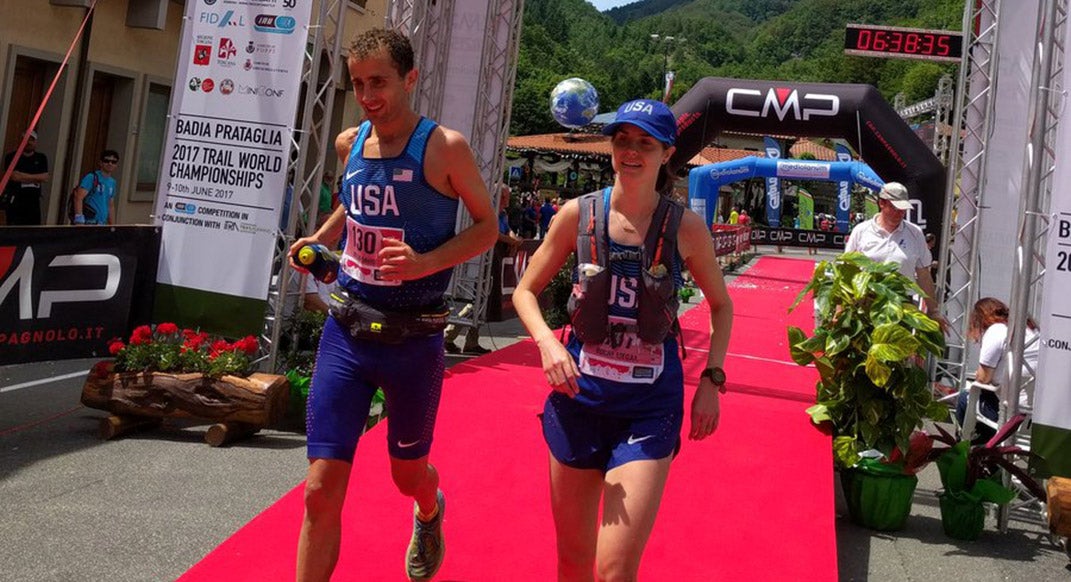David Roche runs for HOKA One One and NATHAN, and works with runners of all abilities through his coaching service, Some Work, All Play.
Embracing Failure on the Trails

If you commit to being a lifelong runner, you are also committing to lots of failure.
You’ll fail workouts, you’ll fail races, you’ll get injured. Smart training can reduce adversity, but no amount of planning can eliminate it. Your long-term development ultimately depends on how you respond to failure.
Personally, I would need two hands, two feet and a few octopuses to count all of my running failures, most recently at the World Trail Running Championships on June 10 in Badia Prataglia, Italy. I was running well, near the front of the race, when my quads decided to leave Europe (a “quexit”). Unfortunately, the rest of my body didn’t get the itinerary.
The last 13 miles took me nearly four hours—more time than the entirety of any 50K I had run to date. Imagine a dumpster fire on wheels, and you’ll have a good idea what I must have looked like as I crawled up the climbs, beset by cramps. After an hour in the mile 25 aid station, I only finished because my wife Megan came by (she was also have a frustrating day) and said, simply, “You’re coming with me.”
I got up, cramped and then waddled off to the finish at my wife’s side.
As coaches and athletes, Megan and I have a lot of experience talking about failure (and dealing with it). It’s okay to feel down for a bit after a setback—that’s normal. But if you keep it in perspective, that setback can make you stronger. Here are three principles to internalize now to ensure you make the most out of your next failure.
1. Focus on the process and don’t get hung up on any one race.
Running training requires long-term commitment to the daily grind. Rome wasn’t built in a day, and a runner isn’t even built in 100. We ask all of our athletes to think of their running development as part of a three-year plan, which is generally how long it takes to get a good idea of running potential. If you zoom out to a three-year perspective, no single moment matters too much.
Think about where you were with running three years ago. Now think of the worst race you had in that span. It’s not all that tragic in retrospect, right? The same goes for your best race—it doesn’t define you either.
Zoom out your goals, and dial in the process. Over a three-year time horizon, no day or week or month is all that important. What matters is a long-term training strategy guided by a daily commitment to the grind.
2. Don’t judge yourself for your failures.
You aren’t your best race, you aren’t your worst race. In fact, you aren’t your race results at all.
At the World Championships last weekend, former Speedgoat 50K winner Hayden Hawks had a rough start. He went from top three to way back, just 10K into the race. Instead of getting down on himself and dropping out, he kept moving forward. Eventually, after 20K of difficulties, he regained his legs and bounded to the finish. While it wasn’t the race he wanted (he was a favorite to win), it was the race he had.
That night at the closing ceremonies, he led a dance with teams from France, Italy and Spain, clearly not wasting time on self judgment. Hawks has found his potential by refusing to flagellate himself for his failures. Like all runners, he has failed to reach his expectations plenty, but he keeps on grinding through the long-term process, adapting as needed but never getting too discouraged. And I bet after his next big win, he’ll be dancing with the same enthusiasm at the awards ceremony.
3. The biggest failures usually lead to the biggest successes
It’s cliché, but if you never fail, you haven’t set your sights high enough. There are countless examples of failure preceding incredible success, but my new favorite is from Mario Mendoza, who finished ninth at the World Champs last weekend, the top U.S. men’s finisher, leading the team to a bronze medal. Last year, at the same race, he went for a great day and suffered to a 124th place finish, forced to a walk for the final 12 miles. But Mendoza was undeterred. This year he rethought his approach to European mountain racing, learned from his mistakes and didn’t judge himself based on one rough day. That commitment to long-term process ultimately led Team U.S.A. to the podium.
So the next time you fail, try to smile, dance and stay committed. Do that, and there is no such thing as failure at all.